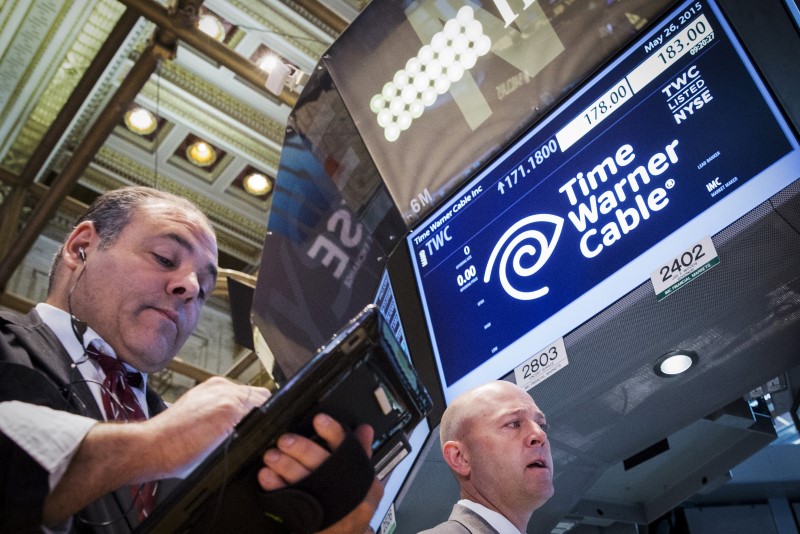By Anya George Tharakan
(Reuters) - Time Warner Cable Inc (N:TWC) said it is working to close its merger with Charter Communications Inc (O:CHTR) by the end of this year, but that target seems "ambitious".
Charter's $56 billion deal for Time Warner Cable is subject to intense regulatory scrutiny as the combined company would control a big swath of the U.S. cable and Internet market.
"From an operational perspective, we are working to be in a position to close as early as this year, but admittedly at this point that feels ambitious," a Time Warner Cable executive said on a call on Thursday. He declined to provide further details.
The deal has been approved by the shareholders of both companies and most U.S. states, but is still awaiting clearance from the Federal Communications Commission (FCC).
National Association of Broadcasters and Dish Network Corp (O:DISH) have separately filed petitions asking the FCC to reject the proposed merger, which Dish said would be no better for public interest than the one proposed by Comcast.
Comcast Corp (O:CMCSA) dropped its $45 billion bid for Time Warner Cable in April, after regulators raised concerns that the deal would give the market leader an unfair advantage.
"One could argue that if Charter can't buy them, no one can," MoffetNathanson analysts said in a note.
"But, unlike the case with Comcast a year ago, those odds (of deal being approved) seem to be rising, not falling."
Shares of Time Warner Cable and Charter were up 2 percent and 2.4 percent, respectively, in morning trading on Thursday after both companies posted strong third-quarter results.
Time Warner Cable posted a better-than-expected adjusted profit as it added more high-speed data customers than expected and lost fewer net video subscribers than feared.
While the company is benefiting from rising demand for high-speed internet services, it has moved to stem video subscriber losses by offering "triple play bundling" services that combine pay-TV, high speed data and voice services.
Charter swung to a quarterly profit, also helped by its Internet business, as well as a $142 million tax benefit.

Cable companies have been grappling with declining subscriber numbers as viewers shift to cheaper and more flexible streaming services offered by Netflix Inc (O:NFLX), Amazon.com Inc (O:AMZN) and Hulu.